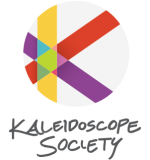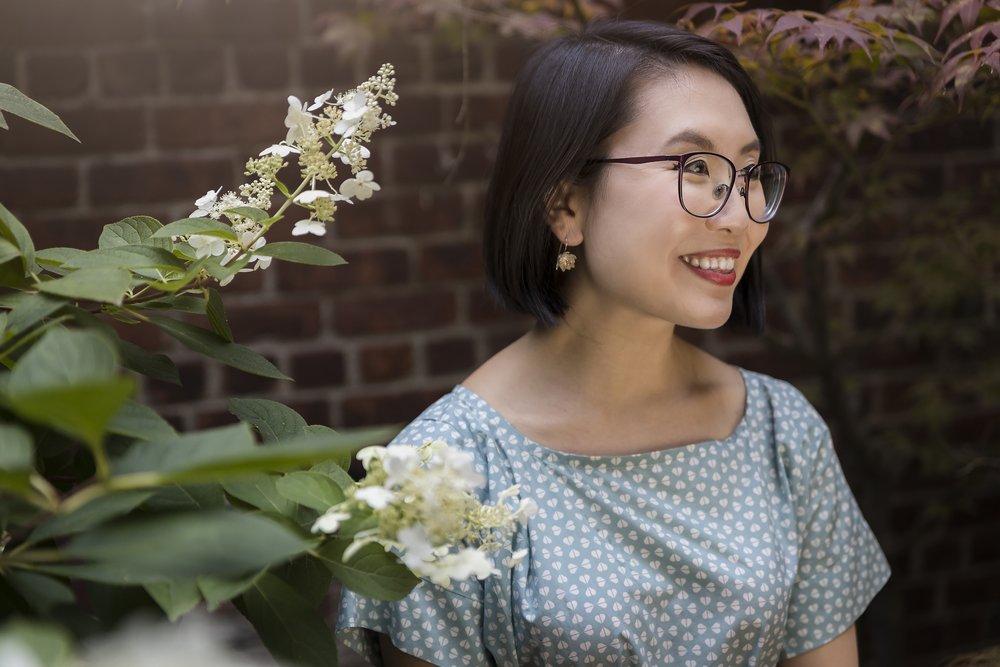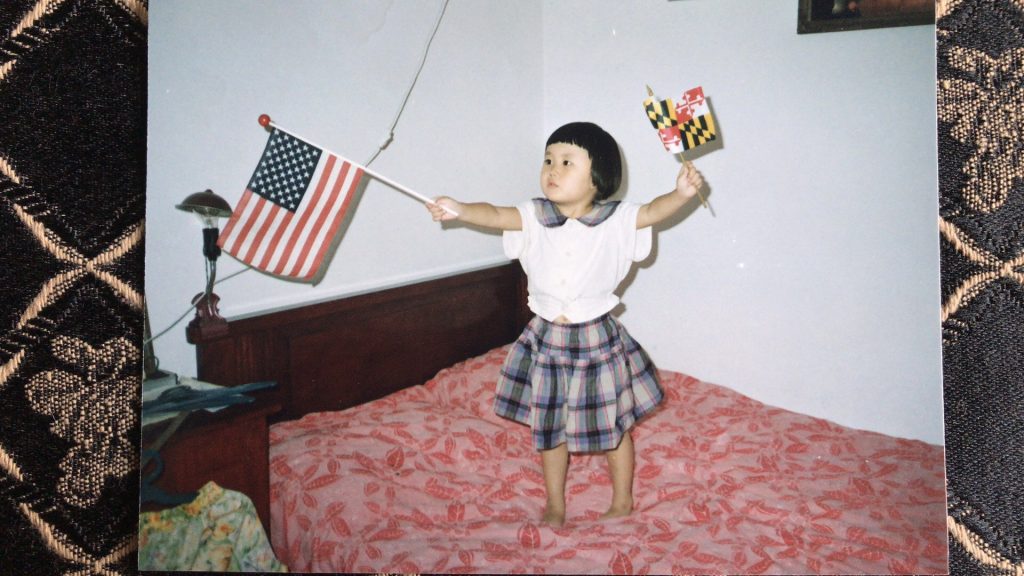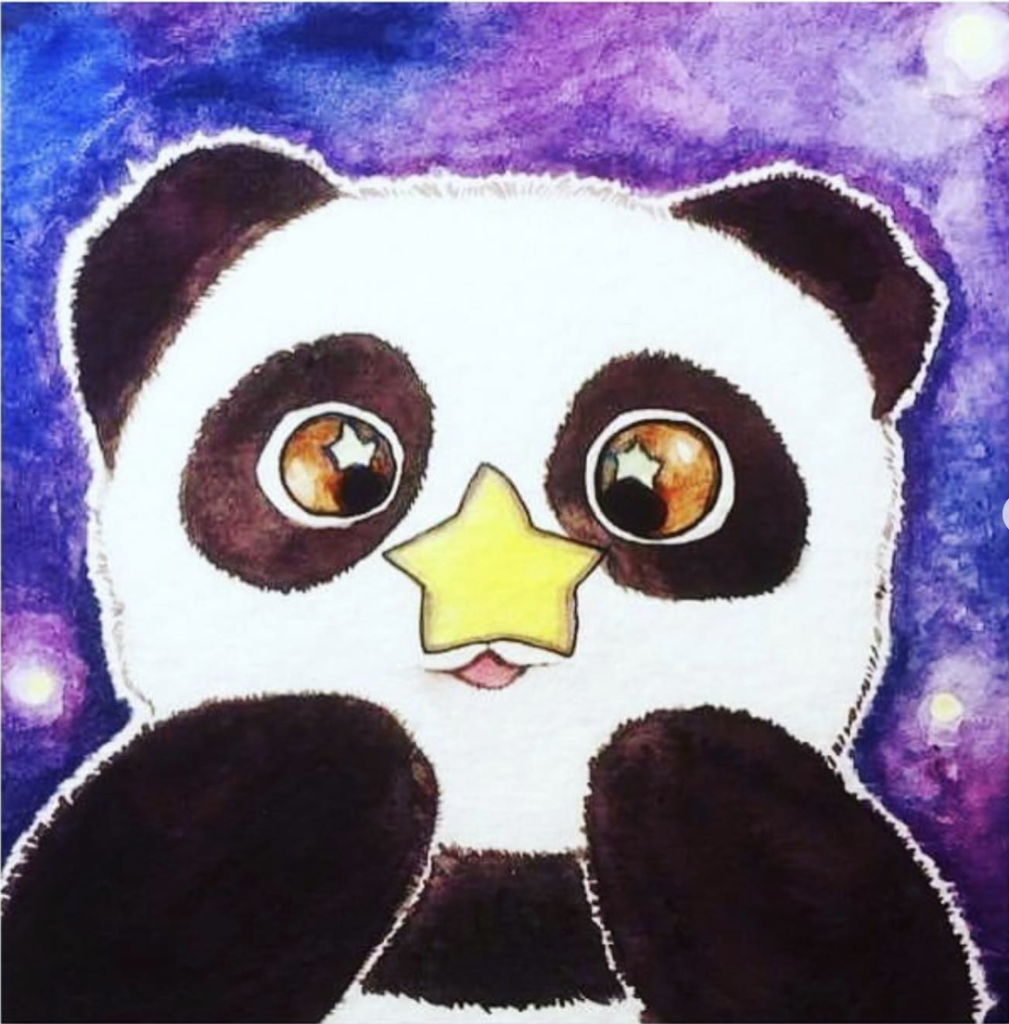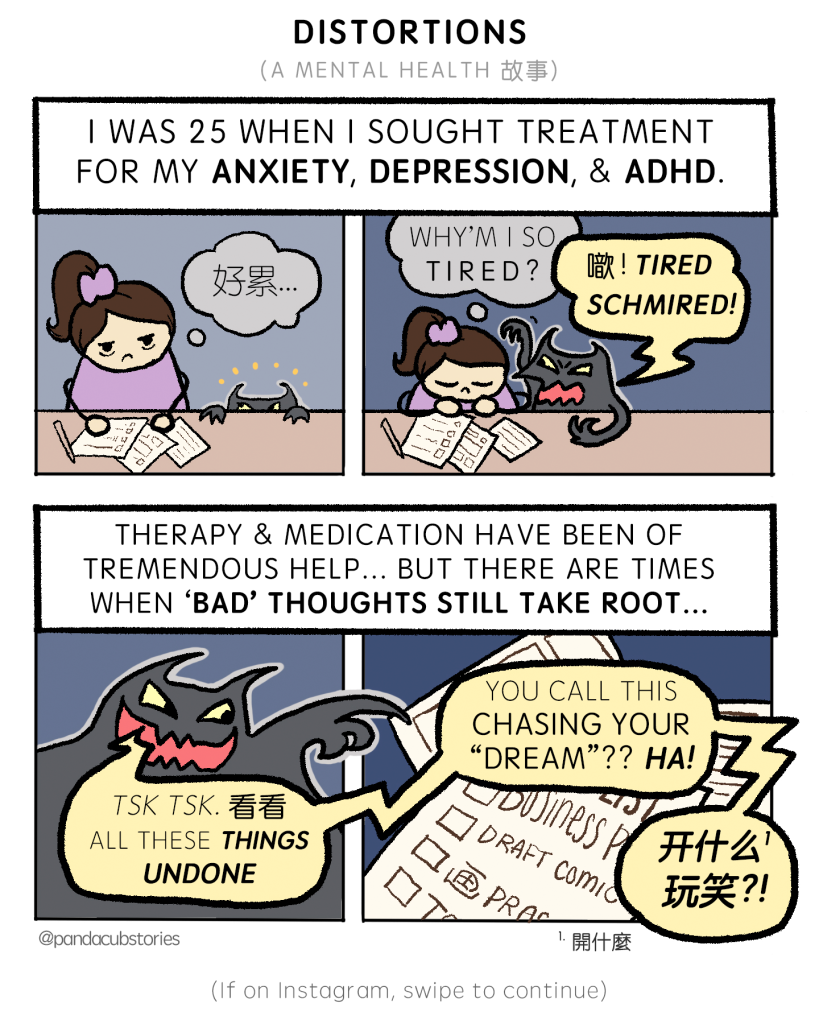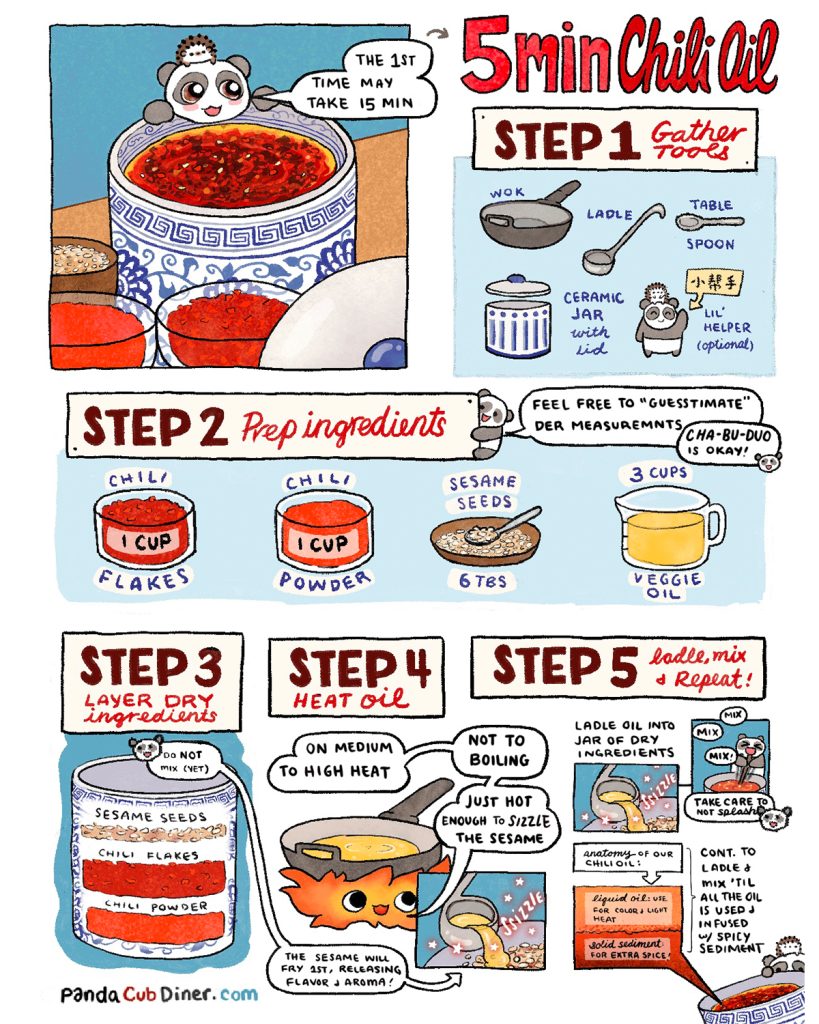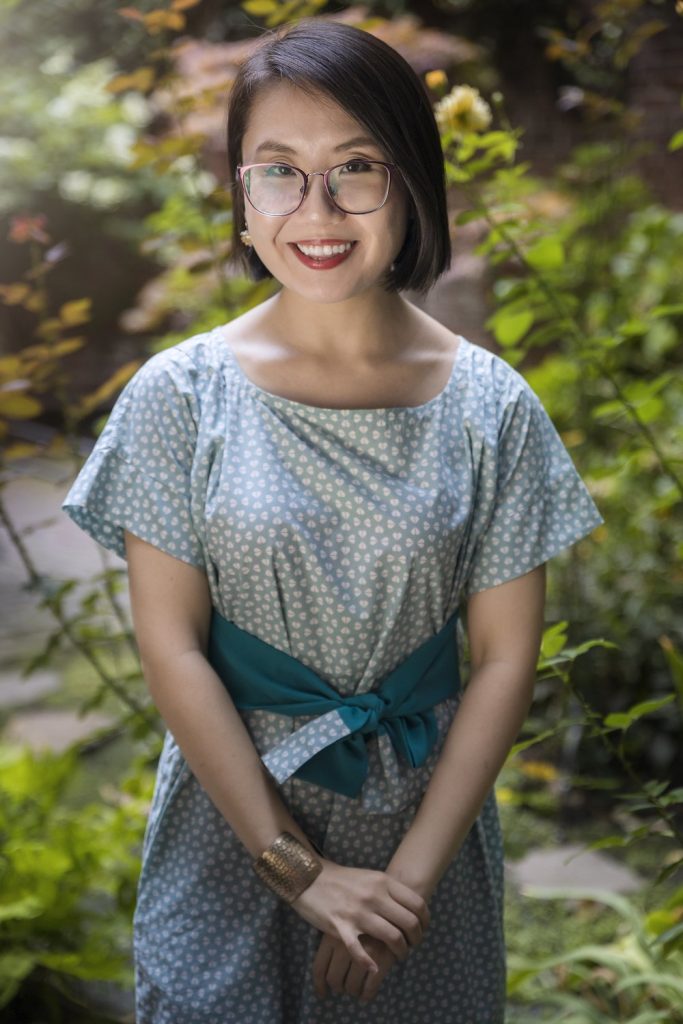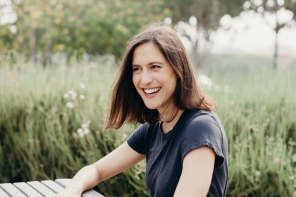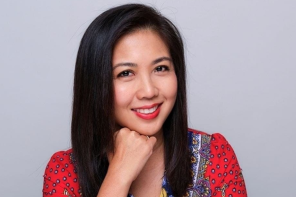Linda Yi is the creator of the Panda Cub Stories, a web comic series about Chinese culture, Sichuan food, and living with ADHD. She also is the founder of Panda Cub Diner – an online cooking school where she teaches students the joys of cooking healthy and authentic Sichuan-style Chinese food, with a generous helping of art, storytelling, and giggles.
What inspired you to create your web comic Panda Cub Stories?
Panda Cub Stories is based on my story! I was born in Chengdu, Sichuan and my mama worked with the Chengdu zoo to research giant panda fertility…and I thus spent my toddler years peering into cribs full of black and white fuzzballs.
When I was a panda cub myself, at 4 years old I immigrated with my family to America. From the time I could grasp a stubby crayon in my chubby fist, I began to scribble down the pictures that danced in and out of my head.
Panda Cub Stories started as little doodles, pictures scribbled on the edges of my childhood notebooks, my attempt of making sense of my new life the best way I knew how. For many years, drawing and writing was as much a source of joy for me, as it was a coping mechanism.
In high school, I’d put off the creeping anxiety of an English paper deadline in favor of making watercolors for my Art class: spending hours and hours adding delicate brush strokes to create the illusion of a Panda’s soft fur.
My first love was working in traditional watercolor, and this fluffy cutie how I originally pictured my main character.
In 2019, I moved to New York City to finally pursue my dream of being a working artist. My intention was to become a children’s book author, creating a series of picture books around a story-loving panda cub, the Winnie-the-Pooh to my Christopher Robin, who would lead her human on a fantasy-laden romp through classic Chinese myths and folktales.
But because I can never stick to one thing at once, I was ALSO teaching myself how to draw digitally. My first attempts are hilarious(ly bad) 🙈, but I decided to start sharing this much simpler style on my instagram.
And what started as a side project – a comic strip vlog (…clog?) documenting my own exploration into Chinese language & stories has now developed wings! And now, three years on, panda is still living her best digital life – helping me explore and share what I love about Chinese language, culture, and food with all of you!
You lived with undiagnosed ADHD until age 25. Can you tell us about that experience and what led you to seek a diagnosis?
Growing up, I struggled with racing thoughts and a “too fast” mind. I’d often forget what I was doing in the middle of doing it. As a child, I was often chided for being too Cūxīn, making the same careless mistakes in home (and school). In Chinese school, I’d sit and copy the characters for hours and hours, only to have them slip away like ants in a stream. In the end, I gave up and convinced my parents I was too busy with regular school to keep attending weekend classes.
In reality, I’d begun to see my brain as an enemy: Why couldn’t my brain hold onto ideas? Why did it seem like a sieve when I wanted it to be a vault? In my darker spells, I felt my brain was simply a magnet for anxiety and depression.
I learned to “compensate” for my shortcomings: double, triple checking work reports; white knuckling through bad spells. Not asking for things I felt like were beyond my reach. Beating myself up over my incurably “leaky” mind.
Even when I “did well”: graduating with honors, receiving positive evaluations at work, I was convinced that I’d fooled everybody into thinking I was competent, whereas inside everything felt like a house of cards ready to collapse.
By the time I was 25, I’d already gone through four jobs: community based research fellow at an arts-based nonprofit in Beijing, cofounder of a short lived internet startup, assistant Mandarin immersion preschool teacher, and a summer program coordinator for my alma mater. I felt like I was floundering, while my peers (seemingly) sailed toward their professional futures with purpose and clarity.
Right around then, I discovered a book called FAST MINDS: How to Thrive if You Have ADHD (Or Think You Might Have It). Honestly, I picked it up on a whim, from the bottom of a clearance bin, because its jacket design sported my favorite colors: purple and green.
But when I started reading…it was like BOOM. “Oh my god”. This is me.
A few months later, I finally sought treatment for ADHD (and what turned out to be anxiety and depression).
ADHD is still very stigmatized, especially within Asian communities. How did you navigate sharing (or not sharing) your ADHD diagnosis with your family?
Starting medication and cognitive behavioral therapy changed my life. I found a community of people who saw strength in neurodivergence, whereas I’d only seen defects. But it was years before I actually shared my diagnosis with my family.
In Chinese culture, mental illness is still quite stigmatized. To call someone “Shénjīngbìng (神经病)”, a medical term for “neuropathy, is a serious insult. And as for ADHD, the Chinese name for the condition is “Duōdòngzhèng(多动症)”, which literally translates to “an illness of moving too much”.
I didn’t know how to broach the subject with my family. But it was actually my Māmā who first reached out to me, after reading my first narrative comic about being diagnosed with ADHD, anxiety and depression. She shared that she struggled with what she now realized was depression for years, a vulnerable conversation I never thought would have been possible.
I’m still not the best at discussing mental health, especially in Chinese. But it’s incredibly encouraging to know that this mix of words, pictures, and English/Chinese language was a way to bridge the language, generational, and cultural gap that had existed so long between me and my mom.
That’s such a powerful story. And now you’ve expanded your platform to include Sichuan style cooking classes through “Panda Cub Diner.” Tell us how that came to be.
For most of my twenties, I had a love/hate with the “making” of food. While I enjoyed helping other’s cook, I could never seem to initiate it myself.
It’s not that I didn’t want to cook: I’d buy gorgeous cookbooks…which never got used.
I loved food network programming: the smiling chefs, beautiful kitchens, and colorful feasts made me feel calm and happy…yet even the thought of cooking conjured up stress and drained me of energy.
When I moved into my first NYC studio apartment, I found myself REALLY missing the Málà and umami flavors of home…some days, all I wanted was the food my Mama made. But I was neck deep in the big and little tasks of launching a new business.
And despite already “knowing how” to make my favorite dishes…I kept spending money on take out. I felt frustrated and ashamed of myself: why couldn’t I just “get started”?
Here’s what I wish somebody had told me: “hey Linda. The problem isn’t you.”
Learning to cook as an adult is harder than it seems. The issue isn’t “know-how”. It’s about motivation and consistency.
The tasks surrounding “cooking” drains our motivation. And when there isn’t an external motivator (like prepping for a dinner party), or an intrinsic motivator (like the prospect of enjoying a cozy conversation over a family style meal), it can feel impossible to get started.
For me, my external motivator came in the form of the pandemic:
The months-long lock down in a New York sized apartment, along with what felt like a sweeping rise of anti-Asian sentiment across the country, I felt increasingly trapped in a vicious cycle of expensive take out, unhealthy fast food, and cold cereal dinner.
At the same time, I was desperately homesick. And for the first time in my life, I made “learning how to cook my family’s food” a priority.
By this time, I’d also started treatment for what turned out to be undiagnosed anxiety, depression and ADHD. I dove into my new project with intrinsic motivation, and – for the first time – structured support.
Thus began a year long journey of (politely) badgering my mama, baba, and 20+ relatives in our family wechat group, gathering and distilling their collective Sichuan cooking knowledge into a growing collection of illustrated recipes that not only celebrated the food that my middle school classmates used to say “smelled funny”, but also were easy, healthy, and adaptable enough for my schedule, body, and brain!
I had a feeling that others probably had the same challenges that I did (well, okay, I knew this for a fact because my followers DM’d me about it on instagram 😂), so I began systematizing my newfound joy of cooking into an easy, low stress guide for anyone to start making quick and authentic Sichuan food!
This guide eventually became Panda Cub Diner, my online cooking program that not only shows my fellow Sichuan food lovers “how” to make the foods they love, but guides them in creating their own external motivators (like scheduling a group cooking date)…which leads them to actually looking forward to the event.
What’s your secret sauce to helping your students (especially those with ADHD) successfully learn how to make authentic Sichuan food?
Together, we separate the “planning” from the “doing”. And soon, the “doing” goes from being a headache to being a joy! It’s that simple:)
The not so secret “secret” is “Divide…conquer…and enjoy.”
I break the experience down into a four week step-by-step system that takes you through streamlining your kitchen and pantry for Sichuan-Style Chinese Cooking cooking. I help my students prepare by providing curated shopping guides of recommended Sichuan Kitchen tools and Pantry staples, which are delivered via strategically timed emails, to lessen their mental load.
At the end of each month, I host live “Cook-along” classes on zoom (with illustrated recipe cards) for my students, which serve as both a social “meet and greet” amongst new and old students, as well as a social cooking experience – which ends with a delicious meal!
I think the real magic behind Panda Cub Diner is the structure, support, and focus on community that’s at the heart of the program. Because so many of us struggle with the tasks that “get in the way” of cooking with joy, we also have weekly and monthly “body doubling” workshops where we support each other in meal prepping, kitchen maintenance and more.
At the end of the day, my students and I don’t need more information or recipes. What we’re looking for is a structured and gentle “guide” that helps us avoid pitfalls, while providing a warm and inclusive space for us to explore the foods we love!
So my cooking course isn’t so much a “DIY” program, as it is a “Done With You” experience.
You are clearly creative and entrepreneurial. What do you consider to be your top strengths that come with ADHD?
I’ve always seen myself as creative, but it wasn’t until after starting medication and cognitive behavioral therapy for my ADHD that I began to see myself as entrepreneurial (in the sense that I could provide a service that was of tangible value to my readers & students).
After finding a community of people who saw strength in neurodivergence, I began to see opportunities where before I only saw shortcomings:
My “silly” need to draw everything down so that it made sense became some of my most popular comics, allowing me to laugh, cry, and learn (in turn) alongside my readers.
My “help me remember” doodles of the “simple” Sichuanese recipes I could never seem to remember blossomed into a full-fledged online cooking program.
I went from being quietly ashamed of the things I did to help myself “keep up” with everyone else (like making illustrated notes, audio-recordings, and task “cheat sheets”), to realizing the way I’d been teaching (and motivating) myself how to do things was actually a highly effective (and fun!) way to teach other beginners learn – whether it be Chinese characters, or Sichuan recipes.
I think that’s my biggest strength as a creative entrepreneur with ADHD-er: my insatiable curiosity and desire to learn, and my (self tested) method of translating those learnings into useful and engaging visual learning guides!
What things are challenging for you? Do you have any go-to strategies or tools that have helped you navigate life with ADHD?
To this day, I struggle with prioritization, procrastination and cognitive distortions. But I’ll focus on prioritizing for now (See how I prioritized these three topics? Ha!).
While getting dozens of new ideas for stories, collaborations and business ideas per day is a good problem to have, feeling like I have to START ON ALL OF THEM RIGHT NOW is actually problematic. Over the years, developing a bullet journaling routine has helped me enormously in teasing out what actually needs to be done today…this week…this month…or can afford to wait.
However, I still get stuck in my own head sometimes, so talking things out with my therapist and ADHD coach helps give me the perspective that I lack as well!
If you could go back in time, what message would you want to share with young panda cub Linda?
The reason I do my work today is that I believe stories can make, or break, us. When we don’t see ourselves in the stories that are told to us, we feel unseen and alone. When we tell ourselves a story that “we’re not enough”, we stay small and defeated.
If I could send a message back in time to panda cub Linda, I’d send her a story that helps her re-write the one she’d been telling herself for years: that she was “stupid” for not being able to remember things the way some other people do. That she shouldn’t feel ashamed for “taking the easy way out” by referencing her hand-drawn notes to do “simple” tasks others can complete. That far from being a crutch, the things she created would go on to help more people than she could have imagined!
The stories you – we – create are making a difference. And the most powerful way we can help create change in the world is by telling our part of the story the best way we know how: through silly humor, joyful stories, and deliciously educational tales 🙂
Follow Linda on Instagram for her latest ADHD friendly Chinese recipe cards. You can learn more about her cooking workshops and and sign up for a free class at www.pandacubstories.com
